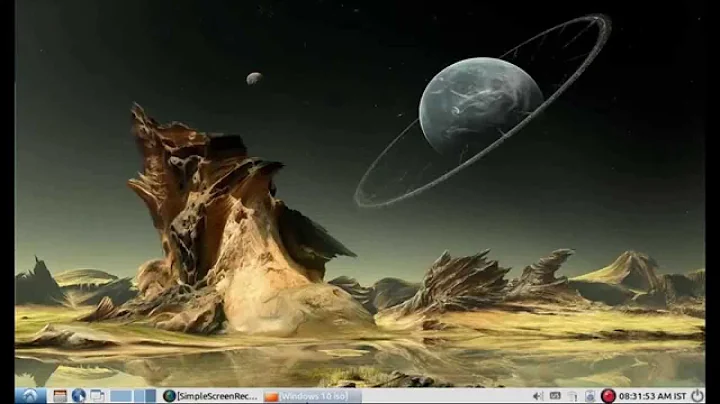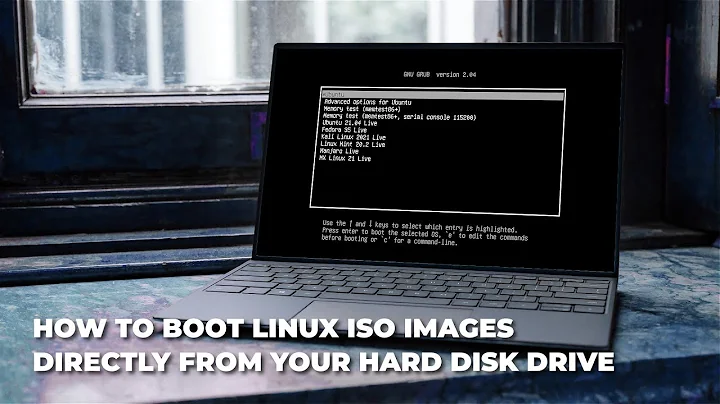How do I extract an ISO on Linux without root access
Solution 1
If 7zip is installed this one is really easy:
7z x Your.iso -oWhere/You/Want/It/Extracted/To
to extract the whole iso.
Solution 2
Many of the GUI tools like file roller will use isoinfo in the background.
You can extract a single file from an ISO like so:
isoinfo -i image.iso -x /isolinux/initrd.img > initrd.img
The redirection is required as -x extracts to stdout.
If you'd like to list contents of a folder in the ISO:
isoinfo -i image.iso -l
example output:
Directory listing of / d--------- 0 0 0 2048 0 1900 [ 26 02] . d--------- 0 0 0 2048 0 1900 [ 26 02] .. d--------- 0 0 0 2048 Feb 6 2010 [ 27 02] i386 ...
Solution 3
I found a new best way: using xorriso!
No need to have root access. I've tried 7z and file-roller, both of them don't work here.
xorriso is an open-source program, so you can download the source codes if you don't have it installed by default.
If you haven't installed it, please download the source codes here: https://www.gnu.org/software/xorriso/
The steps are:
tar zxvf xorriso-1.4.6.tar.gz
cd xorriso-1.4.6
./configure
make
cd xorriso
pwd
Add the output directory into environment variable PATH.
Then, you can use it to extract an iso file:
xorriso -osirrox on -indev image.iso -extract / extracted_path
You just need to modify image.iso and extracted_path to make it work on your system.
Referred: https://blog.sleeplessbeastie.eu/2014/08/26/how-to-extract-an-iso-image/
Solution 4
If you have GUI access, right click the iso, and choose "Open with Archive Manager..." or simply run:
file-roller -e /path/to/extract/to /path/to/iso
Solution 5
Most of the above solutions make you extract the iso content, but if the content is large it will take lot of space.
A better solution would be to do the actual mounting of the iso image, and thanks to FuseISO that is possible without root access (but you would still need to ask the admin to install FuseISO if it is not already installed, in ubuntu sudo apt-get install fuseiso)
Once you have FuseISO installed in the machine you can:
# For user to mount an iso file:
mkdir ~/iso
fuseiso ~/my_iso.iso ~/iso
# For user to unmount an iso file:
fusermount -u ~/iso
Related videos on Youtube
Admin
Updated on September 17, 2022Comments
-
 Admin over 1 year
Admin over 1 yearI have a large ISO file on a server, and I need to access the file in it, without having root access. Thus, I can't simply mount it. What should I do to be able to extract an ISO on LInux without root access?
-
Goblinhack over 9 yearsTo use isoread to extract all the files, try this script: github.com/goblinhack/isoread
-
Jongosi almost 9 yearsSince the OP's question has a "linux" tag it's important to state this won't work with
7za(CentOS);7zadoes not support ISO archives. You can check supported formats with7za i. -
SuperSafie about 8 yearsWhat's the syntax for
unrar? I think that's for Winrar only -
akostadinov about 8 yearsFYI
7zseems smart enough to extract directly off media:7z x /dev/cdrom. I have very stupid issue, that my files show up 0 bytes when mounted. So extracting was a workaround. -
 MewX about 7 years@NeilMcGill Doesn't work here. Lots of errors.
MewX about 7 years@NeilMcGill Doesn't work here. Lots of errors. -
lzap almost 6 yearsISO with Rock Ridge extensions will require uppercase filenames with ";1" appended at the end. Use -Rl to list the files in this form.
-
 PYK over 4 yearsJust to enforce, -o should be without space
PYK over 4 yearsJust to enforce, -o should be without space




